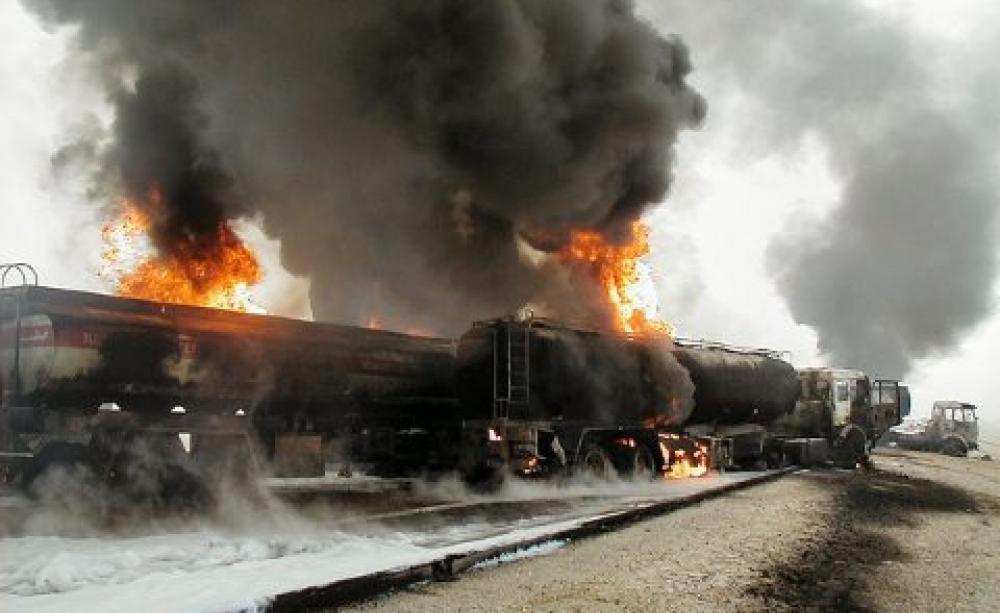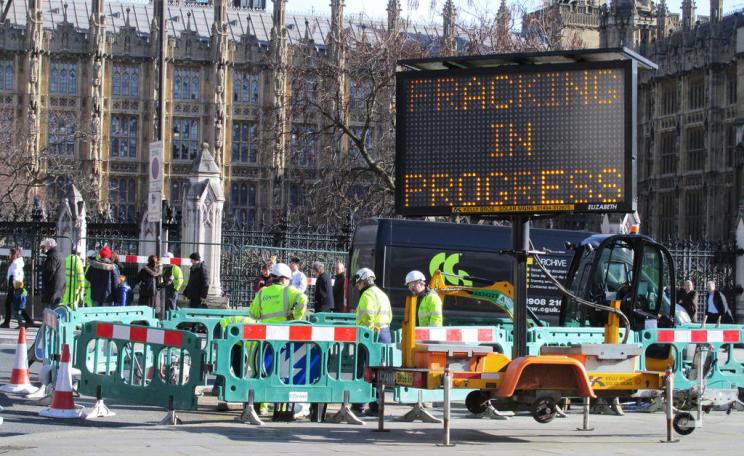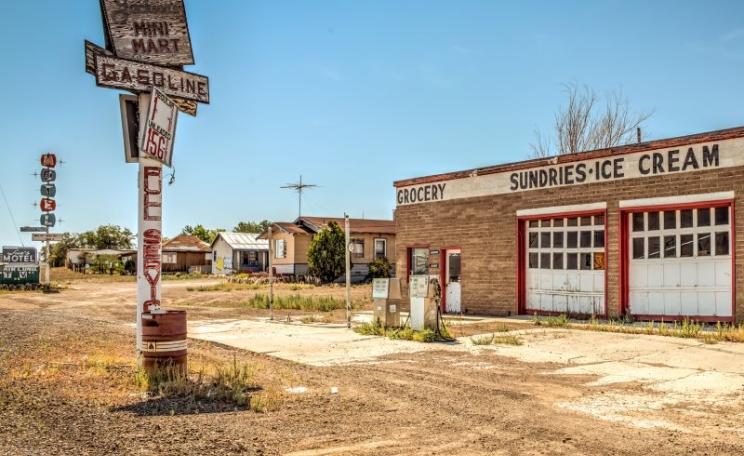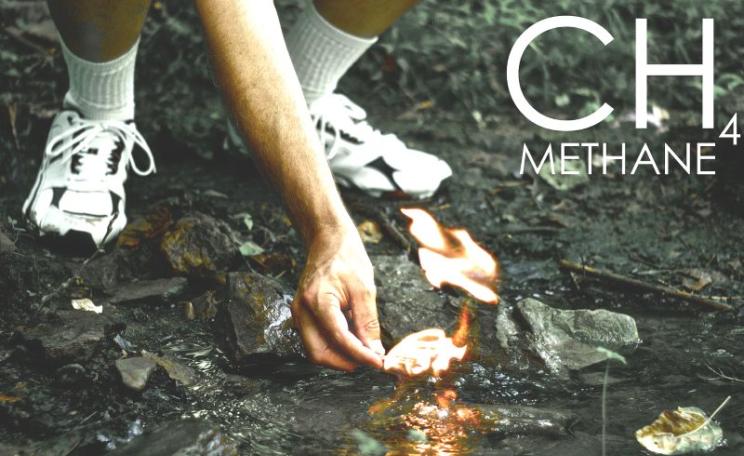Greens should be cheering on OPEC! They're bankrupting the companies we love to hate and curtailing the development of some of the most damaging sources of petroleum operating today.
"Collapsing oil prices should give everyone in the 'green movement' cause for reflection."
Say what! Really? Why is that?
I see the introduction to Steve Melia's recent article for The Ecologist as indicative of a more general problem of how the environmental debate handles complex issues. Simplistic statements, such as that above, don't necessarily reflect the complexity of the available evidence.
The article continued in the same vein: "With lower prices forecast to last for the next couple of years ... "
Really? Yet again there's little evidence to support those rosy projections, and many would state the contrary. Even environmentalism's detractors question such assumptions these days.
For me, recent articles such as this expose the environmental movement's quiet existential crisis. It's a movement whose outlook has become narrowed by external forces as it has become skewed towards a media-led agenda - and which has shifted towards popularity rather than objectivity in addressing our ecological position as a species.
If we were to rely solely on what we see in the mass media, environmentalism is no longer a search to reconcile human needs to the limitations of their ecological circumstances.
It has become a debate over competing consumer choices which reflect, unquestioningly, the dominant consumer debate over affluence and growth, albeit of a green' hue; and dominated by the single metric of carbon ... and pandas!
The fact that we only significantly cut emissions and consumption during recessions, or that we're running out of the resources needed to manufacture green technologies - oh, that's so 1970s!
It's not environmentalists' fault, but it requires their participation.
Greens should be cheering on OPEC! They're bankrupting the companies we love to hate and curtailing the development of some of the most damaging sources of petroleum operating today.
As outlined recently by Adam Curtis, the purpose of the modern, engineered media debate is not to inform, it is to confuse. "Doubt is their product."
The purpose of this approach is not advance a specific debate over change, instead it deflects criticism from existing practices. This happens because statements and events are not based upon evidence, but rather popularly acceptable and often contradictory assumptions - all of which engenders a widespread cognitive dissonance over precisely what 'reality' is.
That's also a problem for major players in the environmental movement today, whose raison d'etre is to chase the media agenda to advance their cause.
Especially with on-line and 24-hour rolling news, the herd mentality governing the media melee overrides the 'deep green' fundamental questions about lifestyle which 'traditional' environmentalism raises. This is especially true in relation to evidence which contradicts the media's dominant political message of growth and affluence.
For example, one of the ground-breaking - but little discussed - recent climate documentaries is Cowspiracy. It examines at the range of available evidence on one of the single biggest practices harming the global environment today: meat-eating.
One startling part of the film is when they interview campaign groups, who largely ignore or side-step the issue, or failed to acknowledge it altogether. Greenpeace refused to appear.
Why do media-led campaign groups feel the need to follow 'the script' the modern managed media assigns to them? Rather than, for example, standing apart and seeking to define their own agenda outside of the 'usual channels'.
This is what the movement did during the 1970s and 1980s - and, thirty or forty years later, contrary to its anti-consumerist 'hair shirt' depiction, the weight evidence today shows that stance to have been correct.
So what is happening with oil prices?
The recent environmental debate on oil prices is an exemplar for how a failure of analysis is leading to a wholly mistaken assumptions about present trends.
And again, it's because people are following a simplistic mass media agenda, rather than seeking to understand the range of evidence available - and use that understanding to their advantage.
Oil prices are falling because many the world's strategic investors think the global economy is knackered. To understand why we need to look across all commodities, not just oil.
It if was just fracking, or a glut of conventional oil driving prices down, oil prices would be falling relative to other commodities. That would be a boon the the global economy and global growth - and yes, people would consume more oil.
But that's not what we see.
Instead, nearly all commodity futures - from copper to cotton to tin - have been trending down over the last year. That's due to the global economy stalling, cutting consumption generally, reducing demand, and thus driving all commodity prices down.
In fact, economists are now worried about deflation. As prices fall, people put off buying stuff in the hope they can get it cheaper in the near future - which depresses the economy even more.
Objectively though this is brilliant for the environment. Far more so than the paltry measures governments are using to address ecological issues - as the Australian finance minister recently admitted.
Whether you 'believe' in economics or not, the markets are reflecting the belief that, irrespective of the contradictory hogwash that lobbyists push into the media, there's potentially another global crash coming. Remember, the problems of 2007/8 were never solved - they were just bailed out.
This is about economic power, not prices
The recent fall in oil prices has little to do with fracking. It arguably does have a link to the 'ecological limits' outlined by the peak oil debate, due to the changing the balance of power between OPEC and non-OPEC producers it creates. But the greatest factor here is geopolitics.
For the last fifty years OPEC has been what's called the 'swing producer'. Whether OPEC opens or closes the taps largely determines the global supply oil - allowing them to manipulate the price. That power can be used for the benefit of the industry, raising prices to encourage investment, or for more nefarious political purposes.
Of course the Middle East, by cutting production, potentially takes a hit on their income. To make matters worse, all their economic loss does is to prop-up the more expensive production in the non-OPEC regions of the world - especially off-shore, in the Arctic, and unconventional production.
With a possible climate deal looming in December, and with the issue of 'stranded assets' beginning to sink-in to the thinking of market investors, does being the 'swing producer' role benefit OPEC any more? That is perhaps what this current 'crisis' is really about.
The Middle East produces almost half the world's crude oil, and it does so relatively cheaply. However, the idea that OPEC's 'cheap oil' will guarantee low prices ignores the near $50 trillion cost which the IEA consider essential to maintain global energy production - which requires a near $100 to $115/barrel price to be economically viable.
Over the last decade, the fossil fuel industry had never invested so much money for such a small return; and that lower productivity is worsening the ecological footprint of their product. Somewhere between 60% and 75% of current production might be considered 'conventional' or 'easy' oil.
The remainder - the more extreme 'conventional' and unconventional sources, from the Niger Delta, to the Arctic, to the deep waters of the Gulf of Mexico, to fracking - is causing some of the highest ecological damage per unit of fuel produced.
If a climate deal, or acceptance of stranded assets, preserves the global balance of production in 2015/16, then it's in OPEC's interest to make sure they are the only oil producing group in the room.
By driving down prices - making all that marginal production in Europe, the Americas, Africa and Australia uneconomic - they may well be the last guys standing, if/when we have to ration future production to meet the needs of a realistic climate deal.
That turns Melia's argument on its head
Far from weakening the environmental argument, as production limits begin to bite, the tussles within the industry are actually benefiting (at least in the short term) the objectives of the environment movement. Obviously OPEC are not doing this to help the environment, but we have to recognise this as a potential short-term outcome of their actions.
And on the far side of the present economic downturn? If OPEC get their way there will be less oil and gas capacity available in a year or two. If demand rises energy prices will spike once more, holding-down demand - again, a benefit for the environment (and OPEC).
Of course this is all geopolitics; and all these geopolitical power plays are incredibly short-term. It does absolutely nothing to address the fundamental ecological trends defining peak oil, nor the greater 'limits to growth' which may collapse the global economy well before dangerous climate change does. But that's another - and far more complex - debate!
Environmentalists should be cheering on OPEC! They're bankrupting the companies environmentalists love to hate!
From the North Slope of Alaska, to tar sands and the Keystone pipeline in Canada, to the fracking patch of the Dakotas, they're curtailing the development of some of the most damaging sources of petroleum operating today.
We don't have to like OPEC, but we have to recognise the 'unintended consequences' their actions may have for the global environment.
Paul Mobbs is an independent environmental consultant, investigator, author and lecturer.
See a fully referenced version of this article on the Free Range Activism Website.







